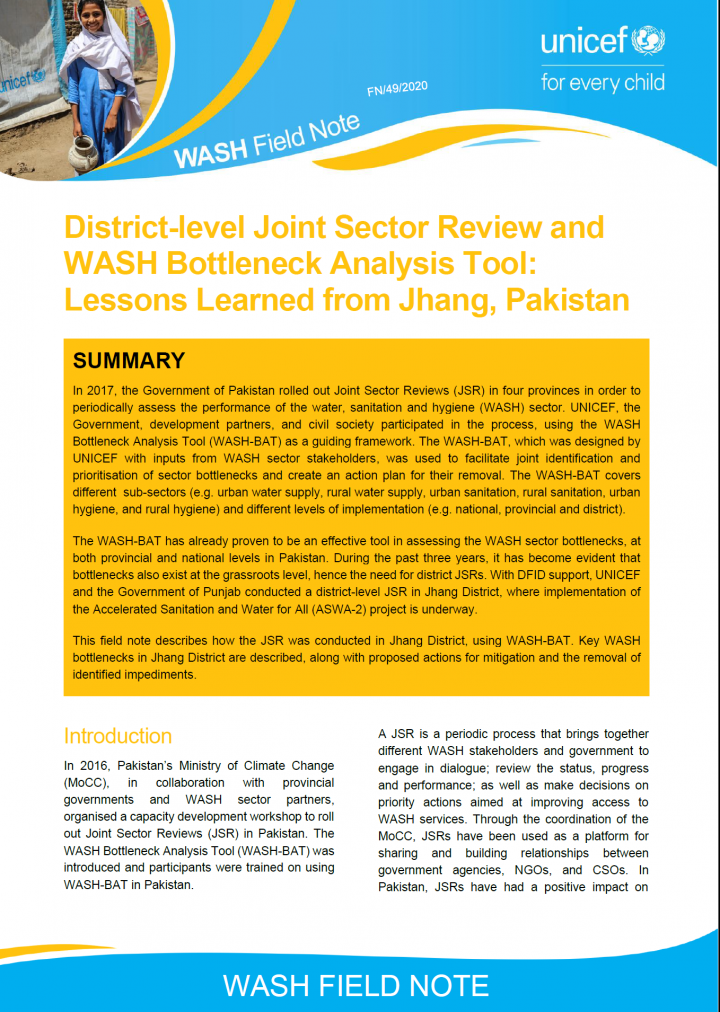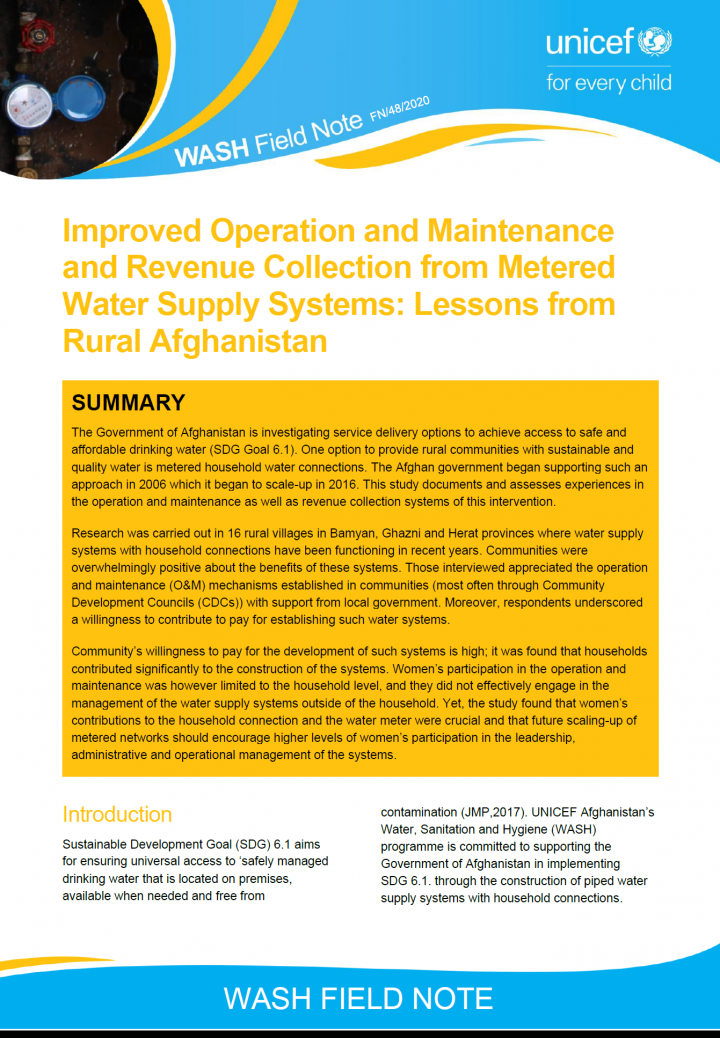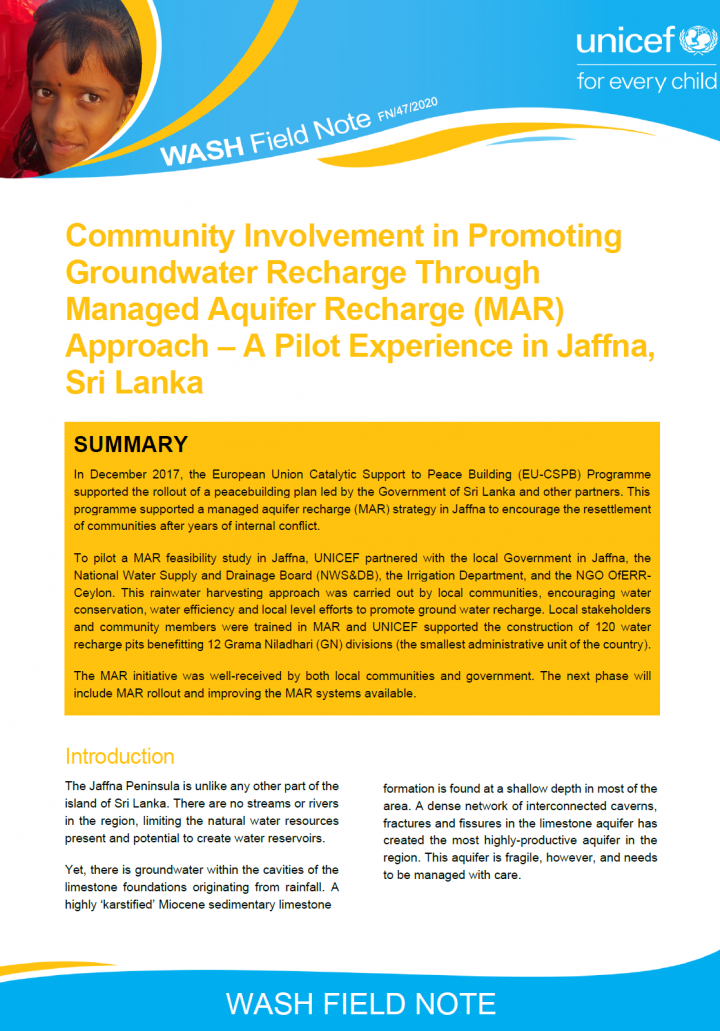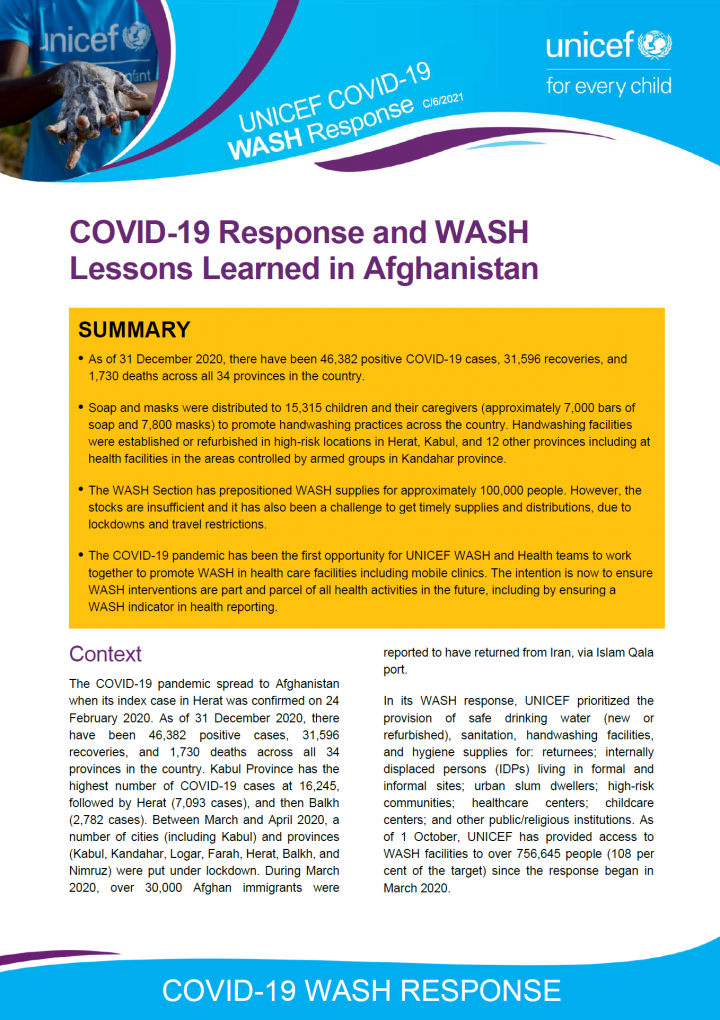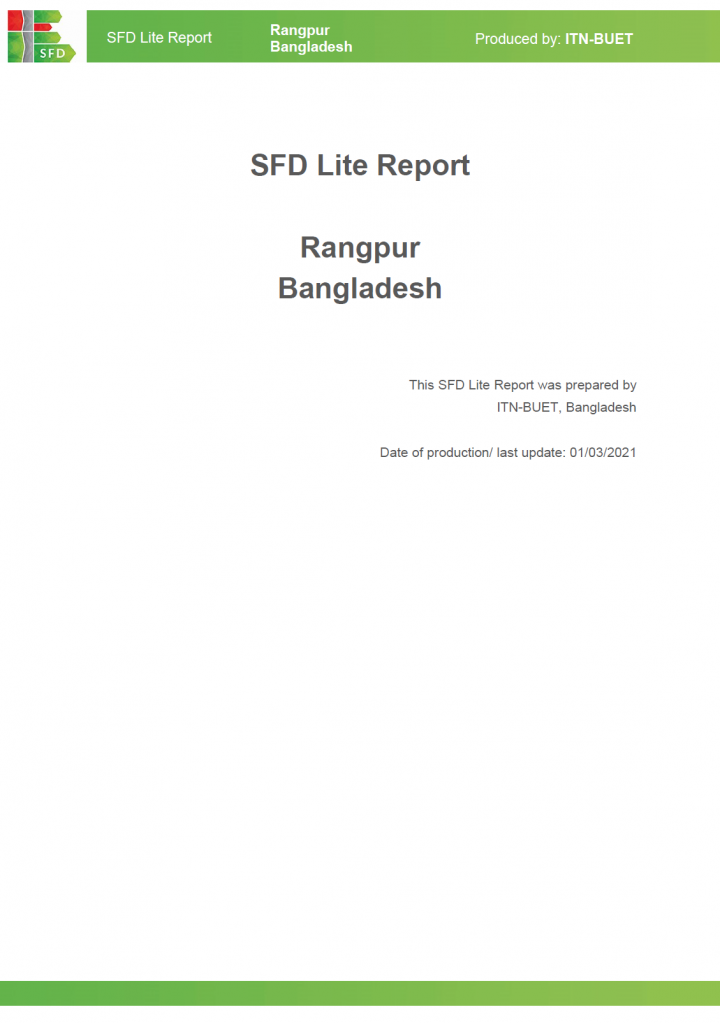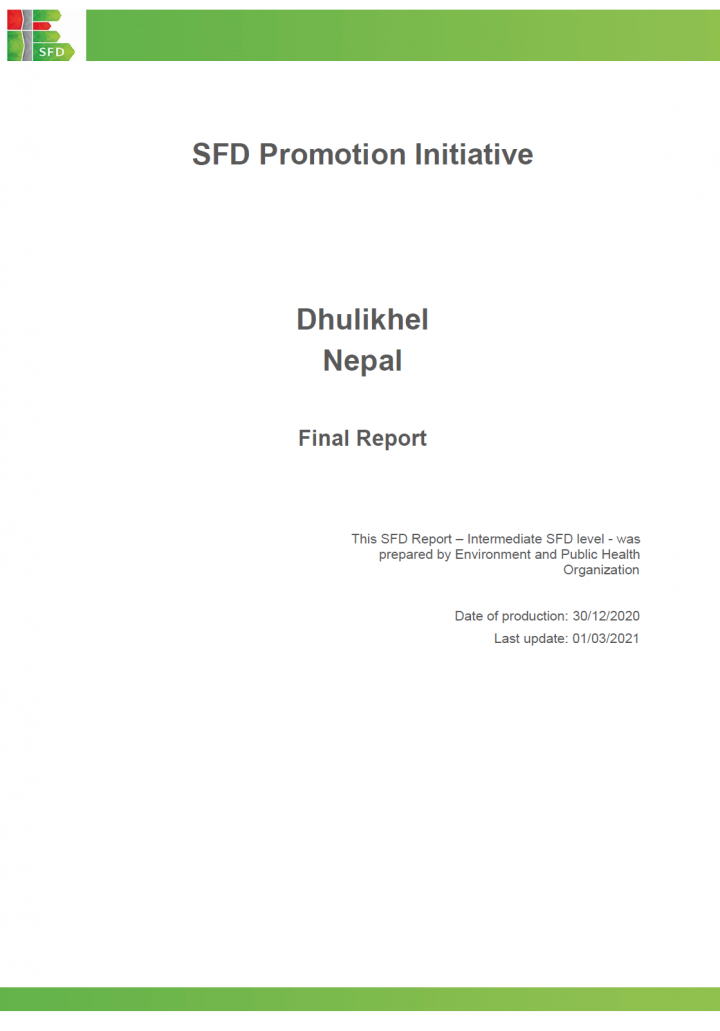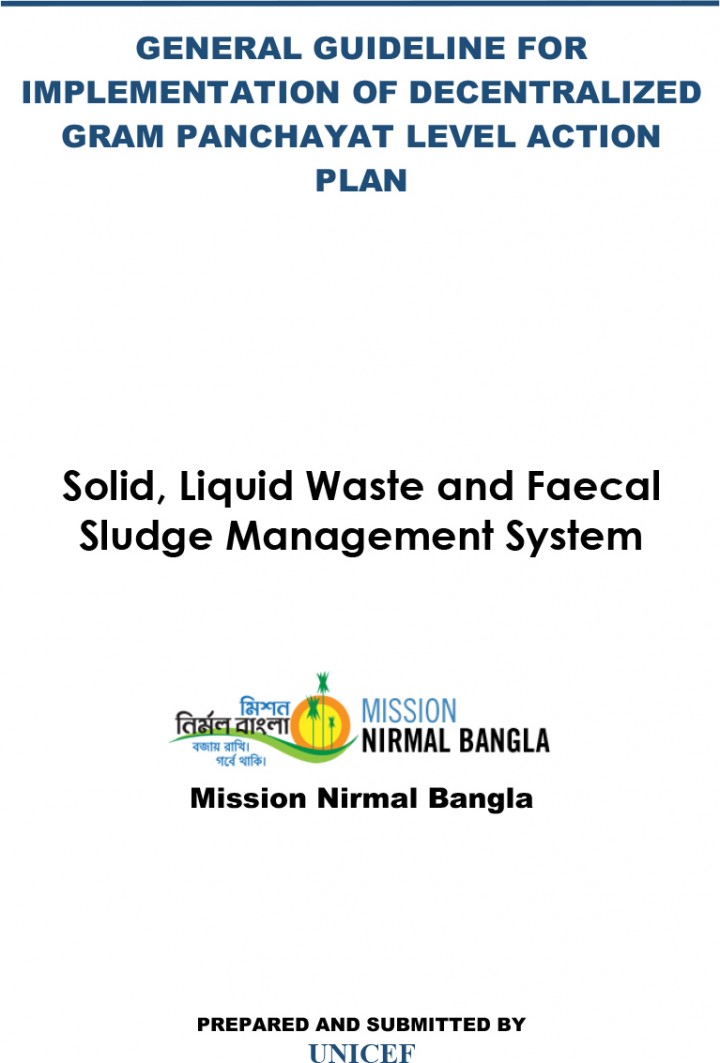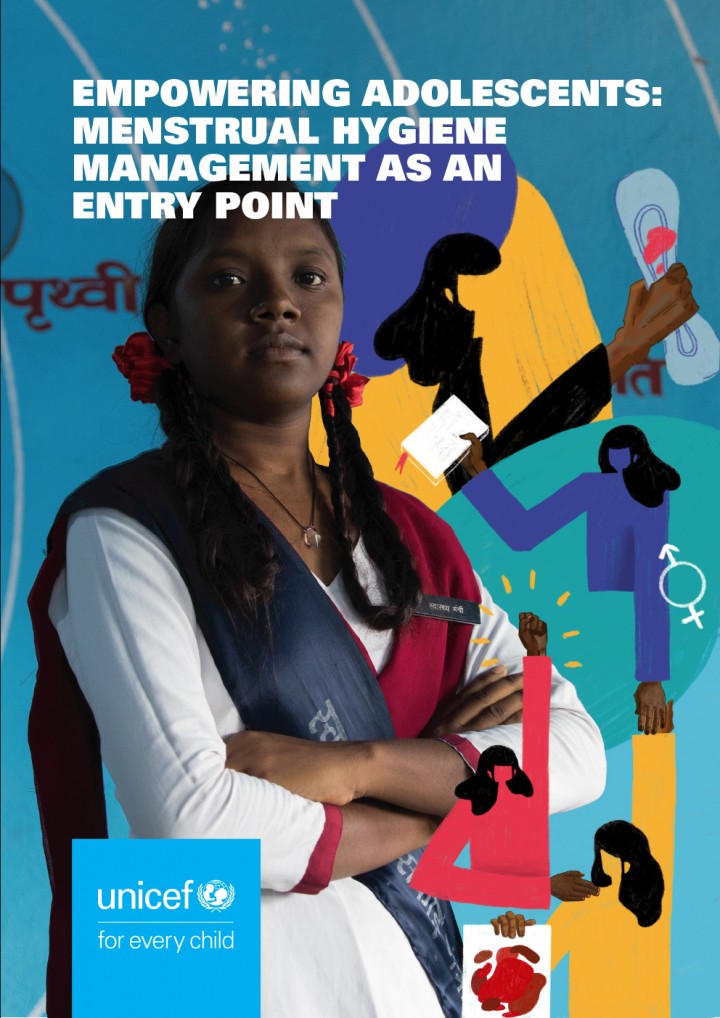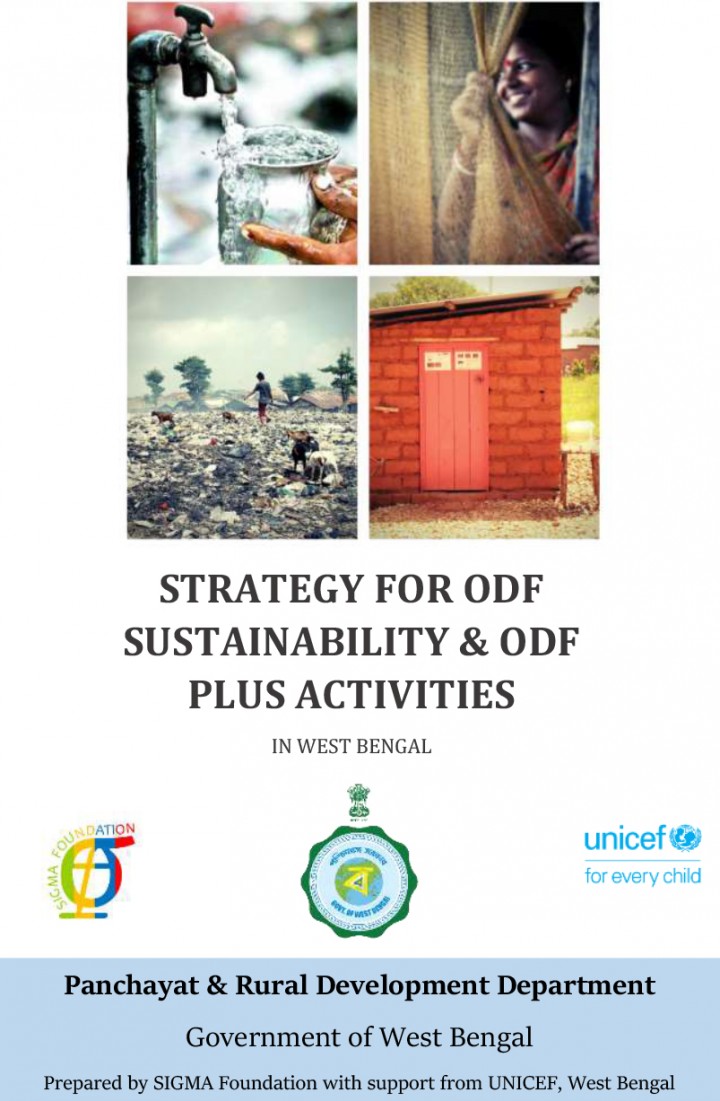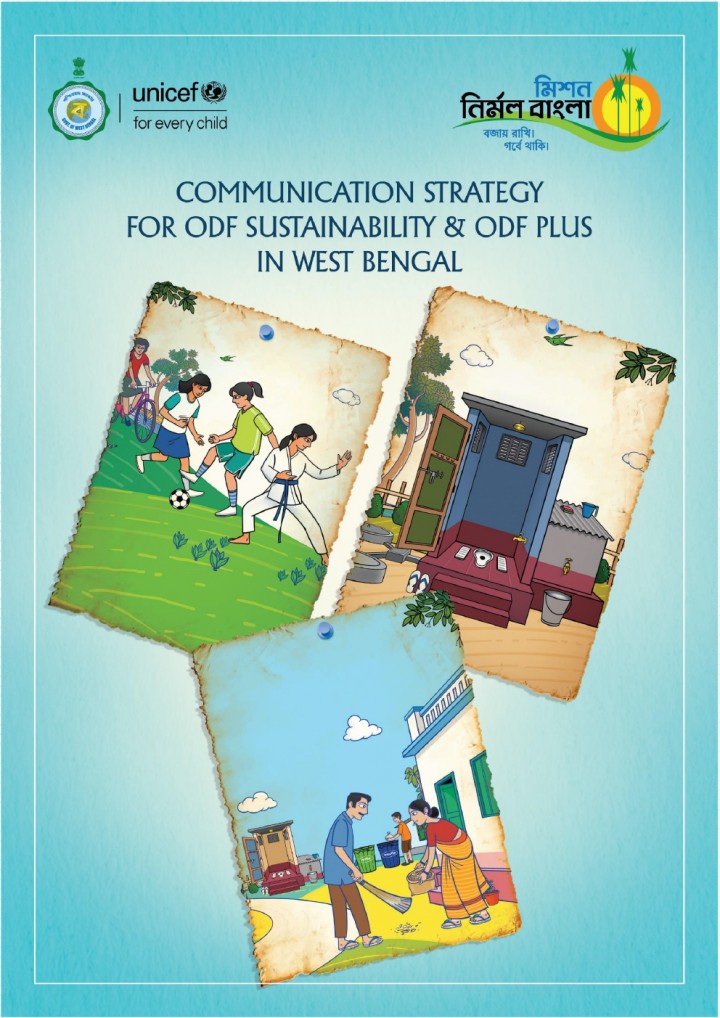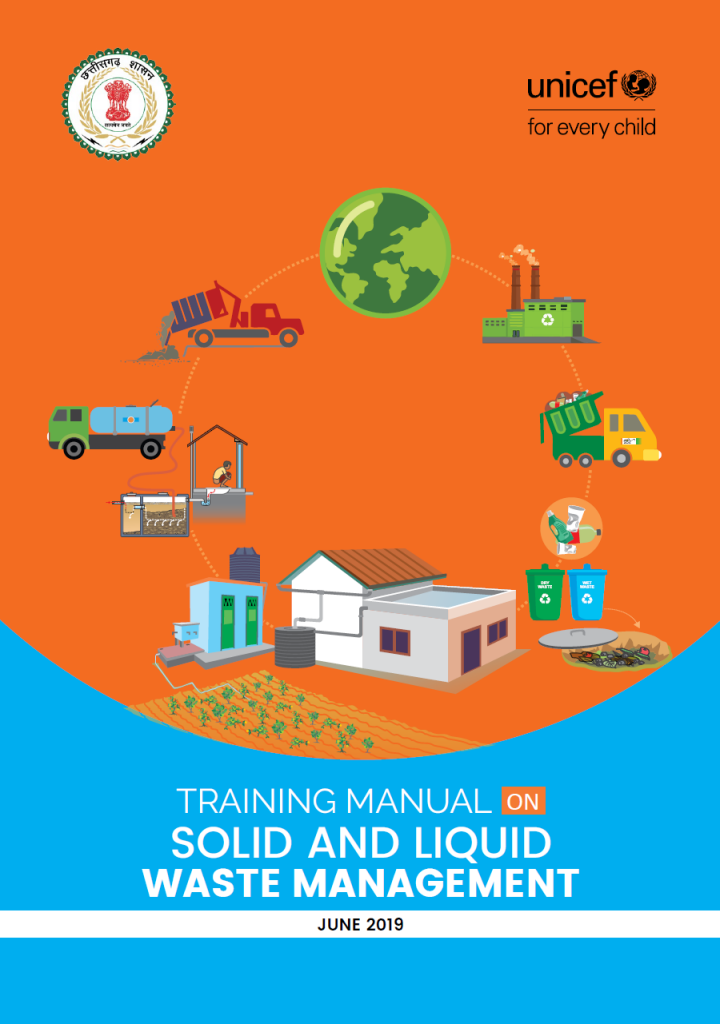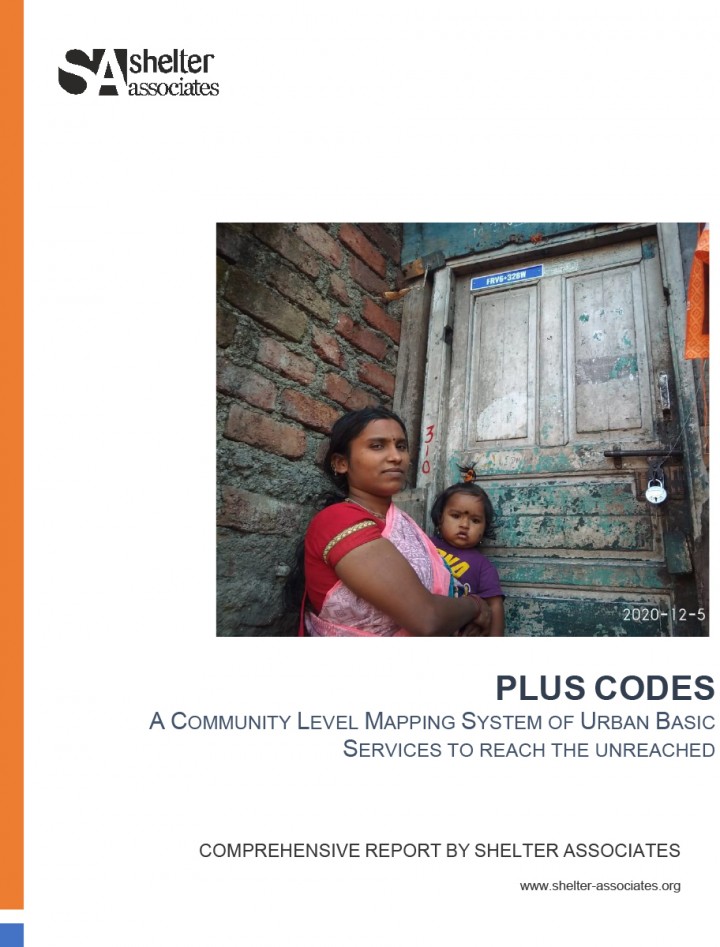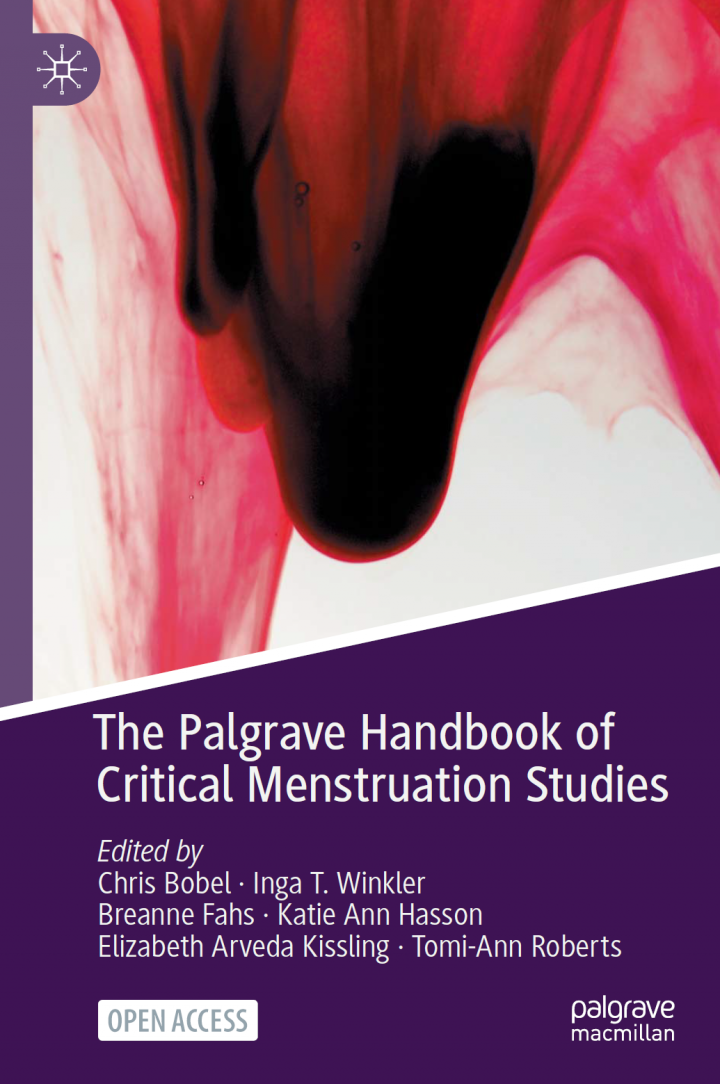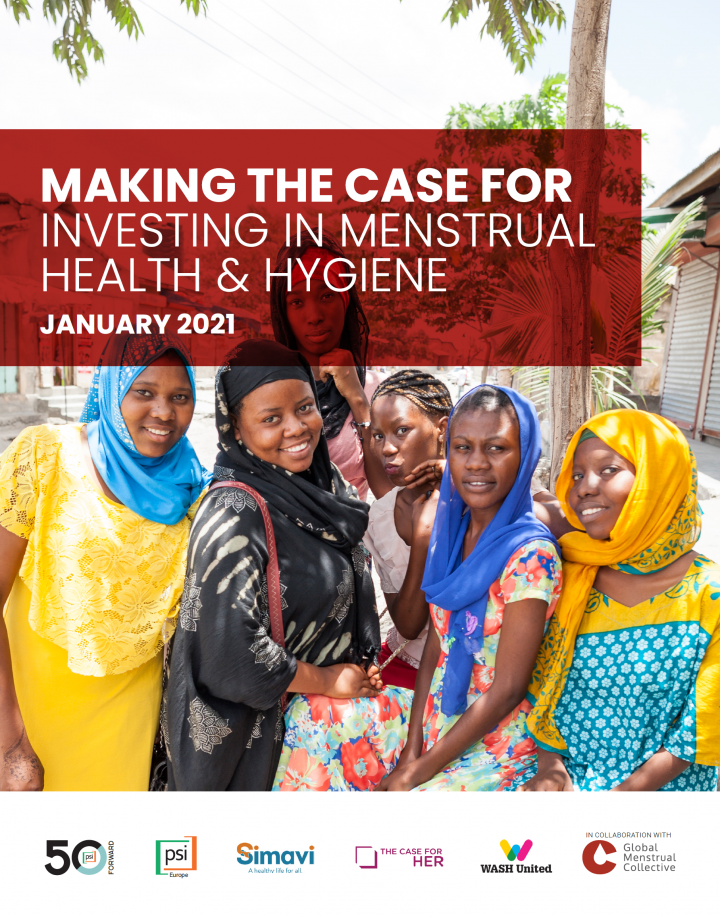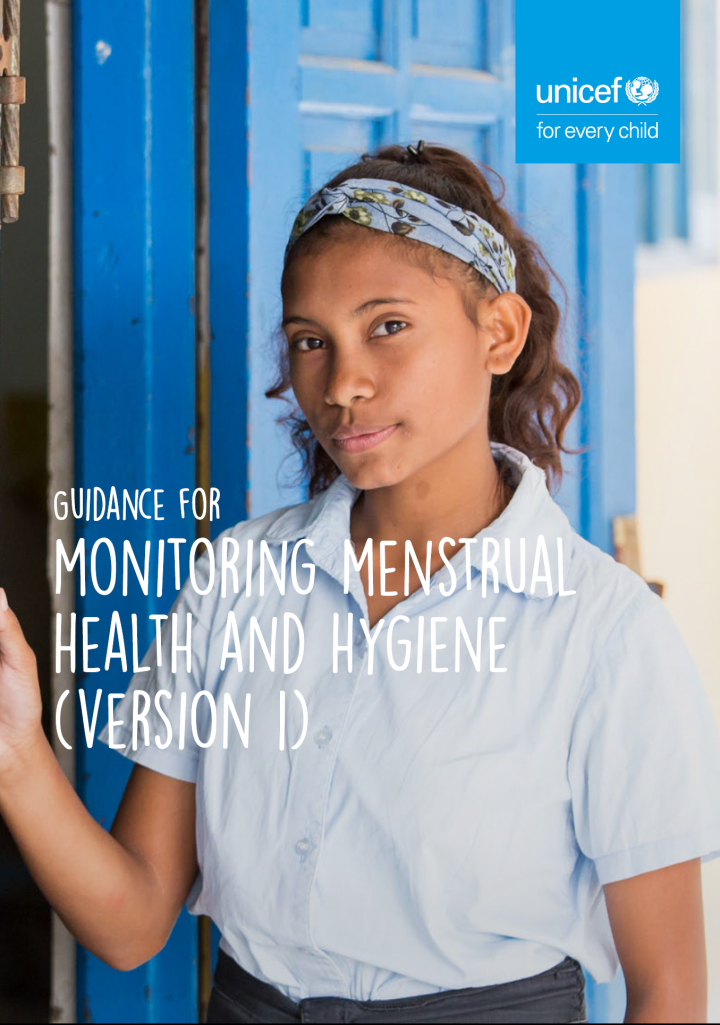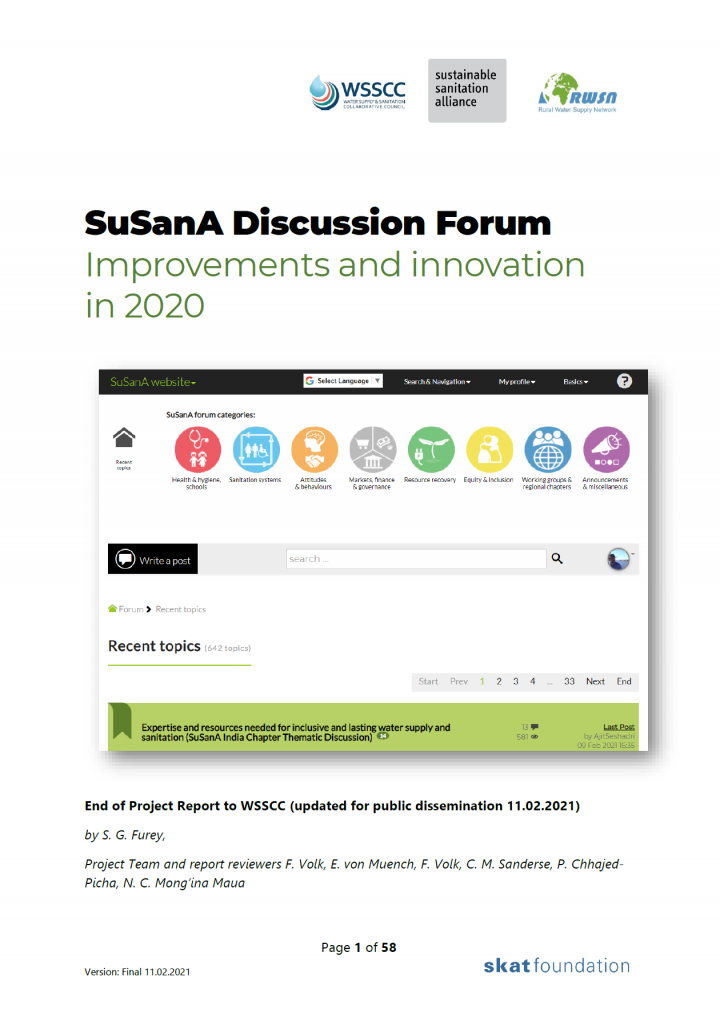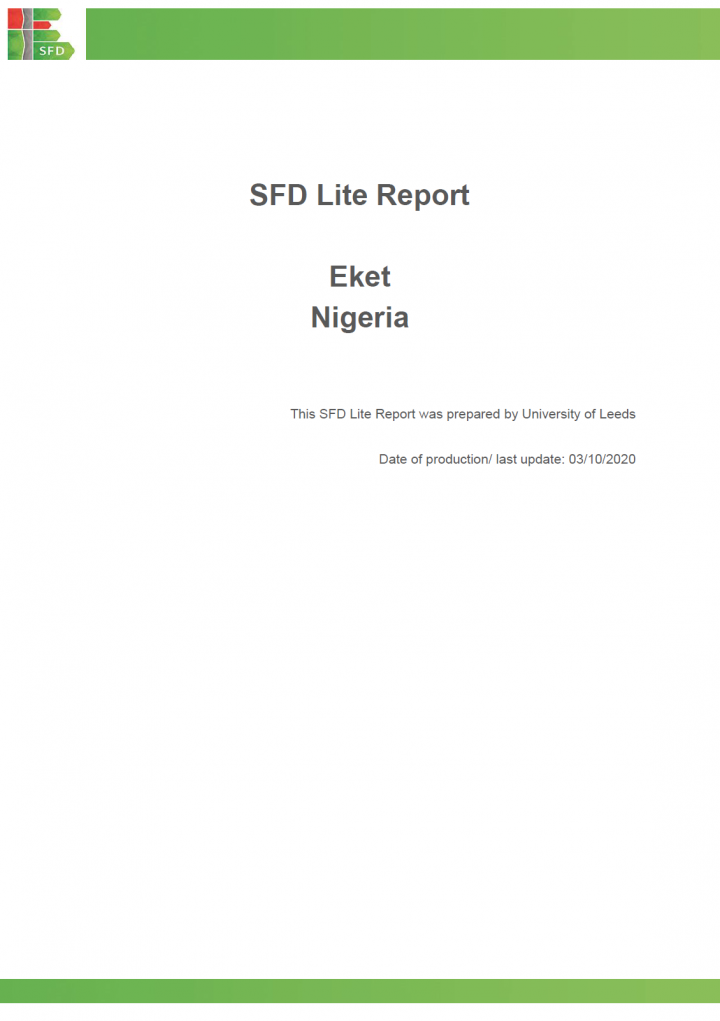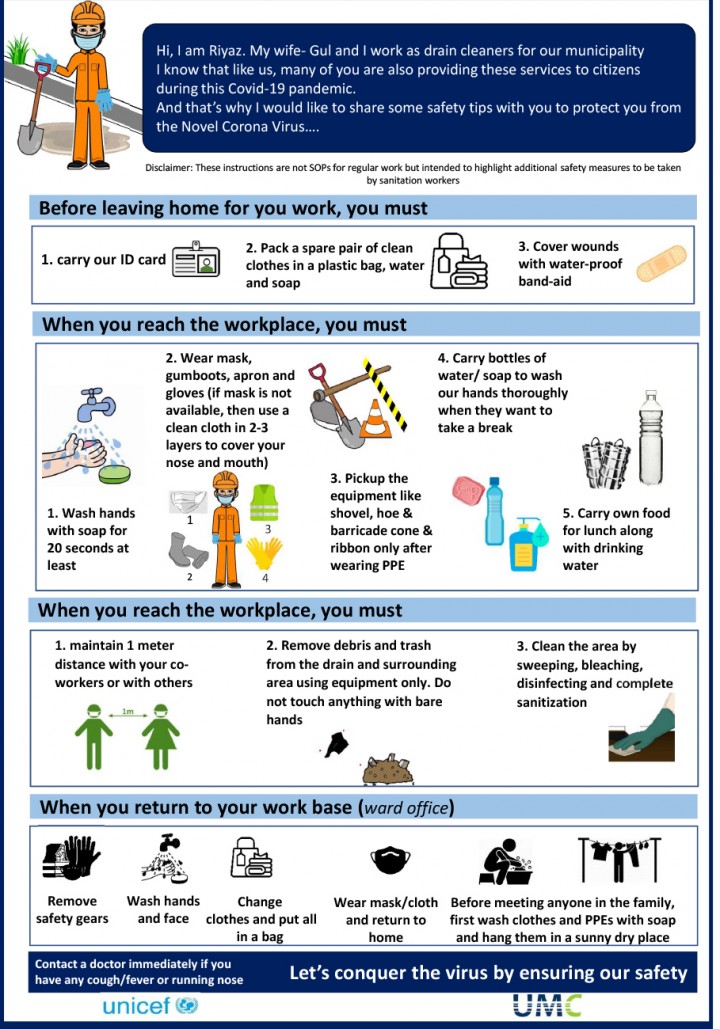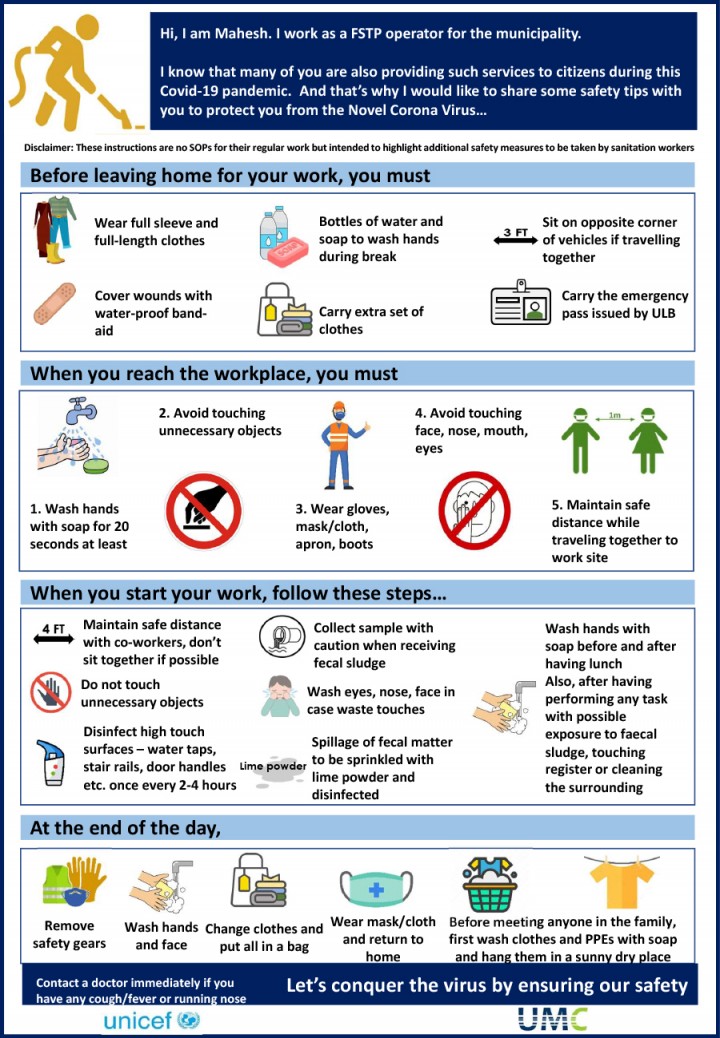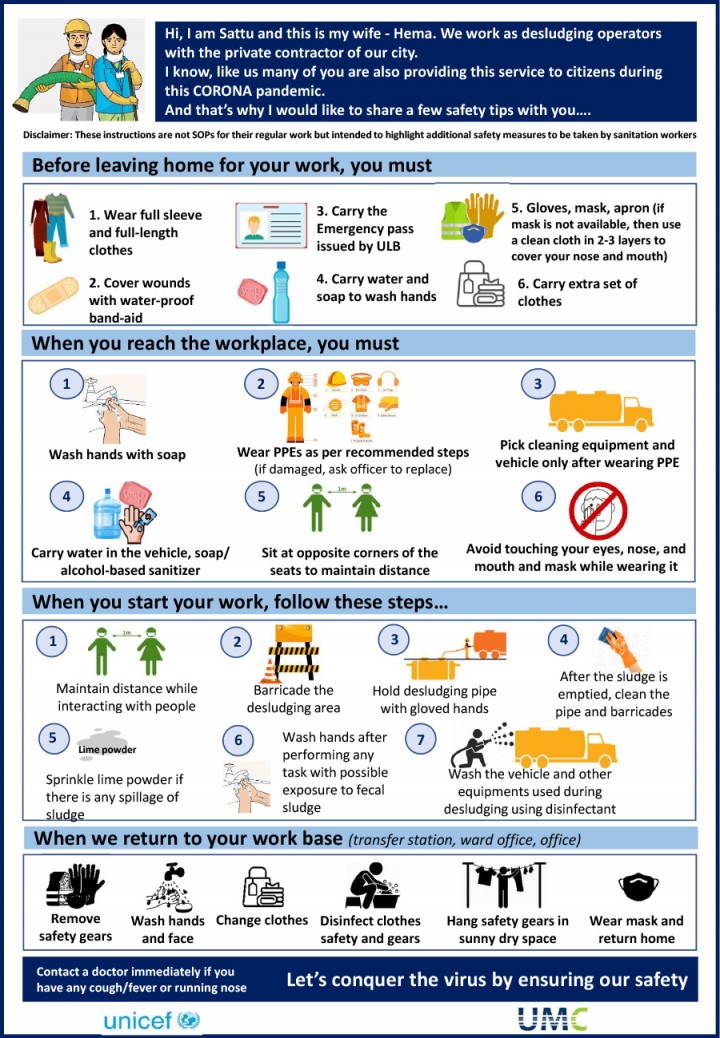Kugedera, Z., Ambreen, S. (2021) District-level Joint Sector Review and WASH Bottleneck Analysis Tool Lessons Learned from Jhang, Pakistan
In 2017, the Government of Pakistan rolled out Joint Sector Reviews (JSR) in four provinces in order to periodically assess the performance of the water, sanitation and hygiene (WASH) sector. UNICEF, the Government, development partners, and civil society participated in the process, using the WASH Bottleneck Analysis Tool (WASH-BAT) as a guiding framework. The WASH-BAT, which was designed by UNICEF with inputs from WASH sector […]
Haziq, H. (2021) Improved Operation and Maintenance and Revenue Collection from Metered Water Supply Systems Lessons from Rural Afghanistan
The Government of Afghanistan is investigating service delivery options to achieve access to safe and affordable drinking water (SDG Goal 6.1). One option to provide rural communities with sustainable and quality water is metered household water connections. The Afghan government began supporting such an approach in 2006 which it began to scale-up in 2016. This study documents and assesses experiences in the operation and maintenance […]
Patabendi, N., Sivakumaran, R., Abdulloeva, S. (2021) Community Involvement in Promoting Groundwater Recharge Through Managed Aquifer Recharge (MAR) Approach A Pilot Experience in Jaffna, Sri Lanka
In December 2017, the European Union Catalytic Support to Peace Building (EU-CSPB) Programme supported the rollout of a peacebuilding plan led by the Government of Sri Lanka and other partners. This programme supported a managed aquifer recharge (MAR) strategy in Jaffna to encourage the resettlement of communities after years of internal conflict. To pilot a MAR feasibility study in Jaffna, UNICEF partnered with the local […]
Various Authors (2021) COVID-19 Response and WASH Lessons Learned Afghanistan, Bangladesh, Bhutan, India, Maldives, Nepal, Pakistan, Sri Lanka
UNICEF’s water, sanitation and hygiene (WASH) country teams work inclusively with governments, civil society partners and donors, to improve WASH services for children and adolescents, and the families and caregivers who support them. UNICEF works in over 100 countries worldwide to improve water and sanitation services, as well as basic hygiene practices. This publication is part of the UNICEF WASH Learning Series, designed to contribute […]
ITN-BUET (2021) SFD Lite Report - Rangpur, Bangladesh
Rangpur City Corporation (RpCC) is one of the twelve City Corporations in Bangladesh and is located in the Rangpur division, northern region of the country. The geographical coordinates of Rangpur City Corporation are 25.56° North and 89.25° East. Rangpur became a City Corporation from Paurashava on 28 June 2012 with an area of 205.7 km2, and is divided into 33 Wards. Figure 1 shows the […]
Environment and Public Health Organization (2021) SFD Report - Dhulikhel, Nepal
Dhulikhel municipality is located in Kavrepalanchok district of Bagmati province, Nepal. The municipality is divided into 12 wards. The municipality is home to 33,981 people as per census 2011. The population growth rate was 0.65% per year from 2001 to 2011. There are two major highways, B.P highway and Arniko Highway which pass through Dhulikhel. Dhulikhel is located at Eastern rim of Kathmandu Valley, south […]
UNICEF (2021) General Guideline for Implementation of Decentralized Gram Panchayat Level SLWM Action Plan
Current solid and liquid waste disposal practices is far from desirable and needs a rethink and an innovative approach with emphasis on conservation and reuse to meet the goals of clean, healthy and liveable villages. Indiscriminate and uncontrolled abstraction has resulted in significant fall of ground water. Compounding the falling ground water table is the contamination of groundwater from untreated wastewater from households. Recharge of […]
UNICEF (2020) Empowering Adolescents, Making Menstrual Hygiene Management an Entry Point
Across six states, UNICEF and Johnson and Johnson created an enabling environment for MHM documented in this publication.
UNICEF (2020) Strategy for ODF Sustainability and ODF Plus Activities in West Bengal
This strategy for ODF sustainability is guided by the vision of the state government and the requirement of the second phase of the sanitation movement. Further, meeting the said objectives will require progress in several dimensions of sanitation and involvement of different departments of the state government dealing with the particular matter as well as all other stakeholders working in the respective sector. The approach […]
UNICEF (2020) Communication Strategy for ODF-S and ODF+ in West Bengal
Sustaining the ODF status in all districts of West Bengal is the need of the hour. Starting with the first ODF district- Nadia, which has already gathered considerable experience in ODF Sustainability, the entire State is now progressing from ODF stage to ODF Sustainability stage. The impact of ODF S including sanitation, safe drinking water and improved hygiene practices goes way beyond just having access […]
UNICEF (2019) Training Manual on Solid and Liquid Waste Management
After achieving the target of universal coverage of individual household toilet, Swachh Bharat Mission Gramin is working towards addressing the menace of solid and liquid waste management (SLWM) to ensure clean and healthy villages. Government of Chhattisgarh has taken a sustainable approach to address solid and liquid waste in the state. SBM-G has adopted decentralized processes for waste management and conservation of natural resources. The Program […]
Shelter Associates and UNICEF (2021) Community-level mapping system of urban services to reach the unreached
The Plus Codes are a unique solution, a digital address given to every location on earth. Shelter Associates and UNICEF partnered to map social and basic services of the slum settlements with unique location codes. This location code can be used on Google Maps and will allow slum residents to access services such as postal, emergency services, gas cylinders and other online services. In addition […]
Bobel, C., Winkler, I. T., Fahs, B., Hasson, K. A., Kissling, E. A., Roberts, T (2020) The Palgrave Handbook of Critical Menstruation Studies
This open access handbook, the first of its kind, provides a comprehensive and carefully curated multidisciplinary genre-spanning view of the state of the field of Critical Menstruation Studies, opening up new directions in research and advocacy. It is animated by the central question: ‘“what new lines of inquiry are possible when we center our attention on menstrual health and politics across the life course?” The […]
PSI, Simavi, THE CASE FOR HER, WASH United (2021) Making the Case for Investing in Menstrual Health & Hygiene (in English, French and Spanish)
Many women and girls worldwide do not have the knowledge, skills, services, and products or support to ensure their well-being during menstruation. Due to the link of menstruation with health, education, water and sanitation, and socio-economic factors, these challenges are even more urgent for those who menstruate in low- and middle- income countries (LMICs). At the same time, there is evidence that ensuring good menstrual […]
UNICEF (2020) Guidance for monitoring menstrual health and hygiene (Version 1)
There has been significant increased attention to menstrual health and hygiene (MHH) in the WASH sector over the past decade, but it has not been accompanied by robust or consistent monitoring. While there is not yet sufficient evidence to recommend a comprehensive set of validated indicators and questions to support MHH monitoring, there are simple steps that can be taken now by governments and programme […]
Furey, S. G. (2021) SuSanA Discussion Forum Improvements and Innovation in 2020 - End of Project Report to WSSCC
From the executive summary: • This report summarises the work done under a grant from WSSCC (via UNOPS Geneva) to Skat Foundation to run and develop the SuSanA Forum. • The SuSanA Forum is a well-established, vibrant online community within the sanitation sector and a major global knowledge exchange hub on topics relating to practical implementation, research and policy. It is an essential part of the […]
Akpeimeh, G. (2020) SFD Lite Report - Eket, Nigeria
Eket is a coastal city in the southern region of Nigeria in the vast low-lying region where the Niger-delta drains into the Gulf of Guinea. The population is 211,255 (as of 2021) of which 80% are considered to be rural dwellers (average population density is 1,200 people per square kilometre). Fishing, subsistence agriculture and commerce are the most common occupations, although in recent years there […]
UMC and UNICEF (2020) COVID-19 and Safety of Drain Cleaners
This poster describes steps to ensure the safety of workers cleaning drains during the COVID-19 pandemic.
UMC and UNICEF (2020) COVID-19 and Safety of FSTP plant workers
This poster is about the safety of FSTP plant workers in the COVID-19 pandemic.
UMC and UNICEF (2020) COVID-19 and Safety of Sanitation Workers
These poster summarise safety procedures for Sanitation Workers keeping the COVID-19 pandemic in mind. The following are included: 1. Desludging operators 2. FSTP plant workers 3. Drain Cleaners
